Photo


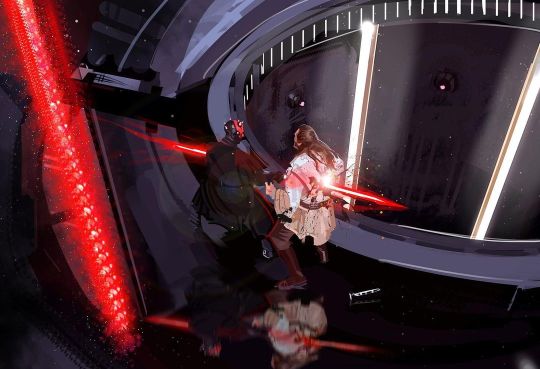

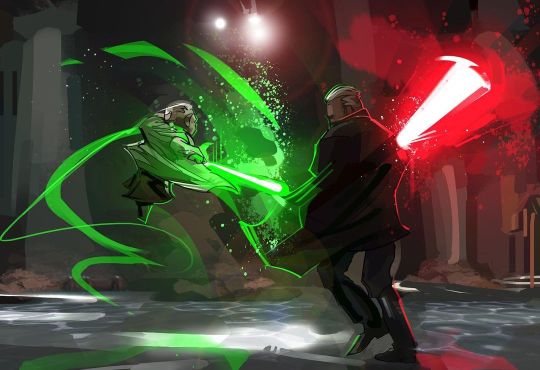

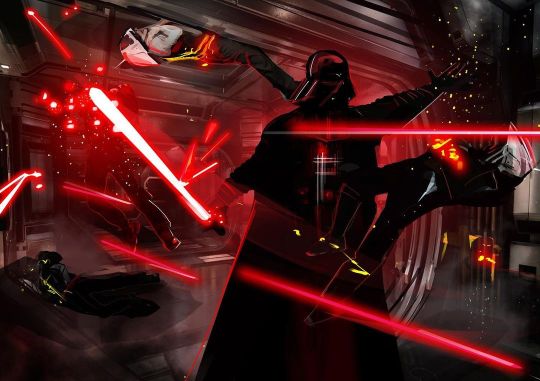

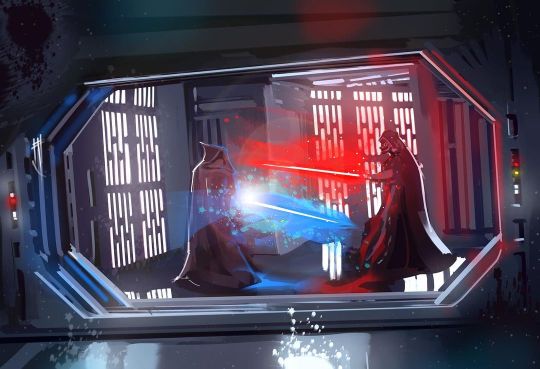
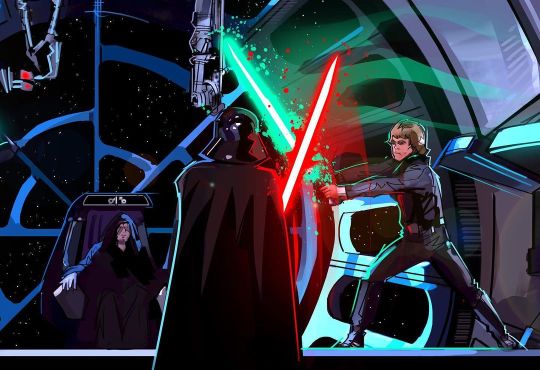
Star Wars Lightsaber Fights | by Eli Hyder
6K notes
·
View notes
Text
"You may ingest a lot of anger, which you will express later on. That is why mindful consumption is very important. When you listen to the news, when you read a newspaper article, when you discuss some- thing with others, are you ingesting the same kind of toxins that you ingest when you eat unmindfully?" - Thich Nhat Hanh: Anger
11 notes
·
View notes
Text
I don't know who needs to hear this
But no, sexual desire is not what makes us human
Neither is romantic desire
65 notes
·
View notes
Text
I’m still not over how well Reva Sevander fits into the storyline of not just Star Wars but specifically Anakin Skywalker’s story, that she’s not just a Jedi youngling that he brutally killed her family, but that the whole point of her character was that she was on the same trajectory as he was.
“You have become the very thing you have sworn to destroy,” Obi-Wan says to Anakin in Revenge of the Sith.
“Have I become him?” Reva sobs to Obi-Wan in Obi-Wan Kenobi.
She swore to destroy him and very nearly became the thing she herself swore to destroy. She rationalizes it, she says she wants “Justice.” when she goes after Luke Skywalker, a youngling like herself with a family willing to die to protect this child, just as the Jedi Knights died protecting their younglings, their family. Just as Anakin rationalized what he was doing, that he was doing this for Padme because he couldn’t live without her, this was the only way he could become strong enough to save her.
Both are just excuses for their own pain and suffering and their desire for what they want, not what the people they love want. Both come from places of understandable and deeply empathizable pain, they’re both characters that my heart aches for.
But Reva stops herself, she chooses mercy at the last moment. She honors her family, they are at peace because she chose to spare the youngling.
Anakin does not stop himself, he chooses to slaughter the children every step of the way. He loses his family, Padme and Obi-Wan and Ahsoka, all of them, because he refuses to stop, to embrace mercy, even here in this show, he murders a child yet again.
Reva’s story isn’t just filler for this show, she is central to the themes of Anakin’s journey, she is a reflection of what he could choose at any point, while also being a voice given to one of the Jedi younglings that he struck down. She is absolutely VITAL to show that Anakin Skywalker chose this and continues to choose it every day.
2K notes
·
View notes
Text
I guess this is what happens when you try to reconcile what you see in that movie, what George Lucas said, and your absolute conviction that
A mother who loves her child would never allow and bear to be apart from him
Children belong to and better off with their biological parents
No person would agree to be a Jedi Knight unless they have no idea what their way of life and philosophy is
If you end up in an area where slavery is still a thing, and you leave without ending it, you supported slavery, no if, no but.
The number of times I've seen people misconstrue/misremember the Tatooine plot of Phantom Menace as "the Jedi (even though it was Qui-Gon) bought/stole Anakin" is astounding
One time I even had someone say OBI-WAN (he was on the ship the whole time) was the one who bought Anakin
This is beyond "media literacy is dead"
226 notes
·
View notes
Text
It would be important to understand that Jedi Knights are not supposed to do the job of the social services, the security force and the law enforcement. They're not supposed to run democracy for the people. They're not supposed to hand out peace and justice. They are supposed to guard the galaxy, not infantilize it.
143 notes
·
View notes
Text
Canon is the author speaking to us. Fanon is us starting to add words and whole sentences to the speech the author gave to us. It's OK, as long as we have the common decency to care about what the other person was actually saying, and not start running around saying, "it doesn't matter" or "why should I care?"
the "canon isn't real we make our own rules" to "i am begging you people to revisit the source material" pipeline
78K notes
·
View notes
Text
One of the reasons why the Jedi Order is criticized is the fact that George Lucas' Star Wars actually shows that the good guys can't be always nice and you can't do perfect. The Clone Wars illustrates this masterfully: as Lucas said, "Are they going to stick with their moral rules and all be killed, which makes it irrelevant, or do they help save the Republic?" But some people are just unable to accept this.
There is always a right choice. Right doesn't mean it's the nicest and most perfect choice, the one that you might find the most satisfying and pure. But it's the best choice you can make in given circumstances. And in 99% of life, that's all we can do.
1K notes
·
View notes
Note
I was watching the Clone Wars featurette about the Holocron arc and Dave talks about the scene where Bane threatens to kill Ahsoka. He says "we're seeing a dark side of Anakin, and in a very clear illustration of why Jedi should not have attachments, we see that attachment get exploited." So clearly at what point in time he understood the whole attachment thing. What happened?
Unlike Karen Traviss, I think Dave Filoni actually understands what "attachment" means, in Star Wars. Apparently, it's the Star Wars theme that he and George spoke the most about.
"The biggest area of the Force and the Jedi [that] George and I have gotten into discussing the whole deal with attachments. And, arguably, that's what Anakin whole life is hinged on, is this - like you've mentioned - he has a lot of attachments to Artoo and how how right or wrong is that? Is it that the Jedi have made themselves dispassionate, that they are actually deceived by the Sith and they fall apart?"
- Dave Filoni, Rebel Force Radio, 2012
What I've noticed is that, while understanding the meaning of attachment... Filoni doesn't seem to agree that the Jedi embody the concept of compassion.
He has acknowledged a couple of times that, yes, "attachment is bad" is the theme of Anakin's story (and even then, he'll question if it's really so bad, unlike Lucas who stands by the theme) but disagrees that the Prequel Jedi represent the obvious counter-theme, "compassion is good."
If you read what Filoni says, he argues that:
The Jedi have lost their way, taken the "rid yourself of attachment" rule and pushed it to an extreme where they've rid themselves of any empathy and thus compassion. They've focused so much on being selfless that they've forgotten how to love.
All except for Qui-Gon, who is the only one that truly knows how to love without getting attached, to love selflessly.
And personally, that strikes me as a coping headcanon, a way of reconciling the theme and feeling the Jedi like Mace, Ki-Adi, even Yoda and Obi-Wan are stoic, unlikable and too different from Luke.
Sure, they're not perfect, but nowhere in the films is the Jedi's stance on love framed as "bad" by the narrative. The narrative agrees with their philosophy, and George echoes it.
In fact, among 772 collected George Lucas quotes, I've never seen him state that theme while adding the asterisk that "of course, the Jedi of the Prequels have forgotten how to be compassionate, except for Qui-Gon who was the true Jedi."
And of course he doesn't do that. Because doesn't that muddy the waters so much? Supposing Qui-Gon truly is the only character that embodies the concept of "compassion"... doesn't killing him off in the first film confuse a targeted audience of children?
Bearing in mind that the Prequels are about how greed makes people and institutions become the very thing they swear to destroy, and Star Wars as a whole is about being selfless instead of selfish:
On the one hand we have Anakin and the Senate showing what you're not supposed to do.
On the other hand you have... nobody. Except one of the first film's four protagonists who died at the end.
That seems overly complex, a whole lotta hoops to jump through.
So yeah, Dave Filoni gets attachment means. He just doesn't think it's as bad as Lucas' films frame it as, and disagrees on the Jedi narratively embodying the concept of compassion.
And I think it's coping. Just like any irritated Star Wars fan does when they're confronted with something they're unable to make sense of.
“I care because I passionately believe that important stories ought to make sense.” As well you should—and when a story does not, you apply that passion to finding a way to make it make sense. [...]
When a rational and inquisitive mind is confronted by the engaging yet irrational, it often responds in this manner. This process is not usually appreciated by those undergoing it; the most common reaction is a deep irritation. But isn’t that always how pearls are formed?”
- Don DeBrandt, Star Wars on Trial, 2006
But if you ask me, coping is better than raging.
129 notes
·
View notes
Text
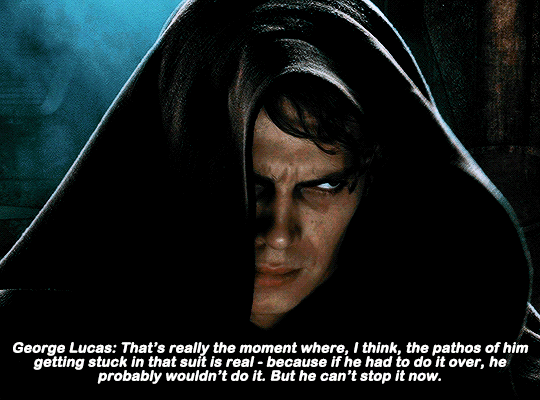


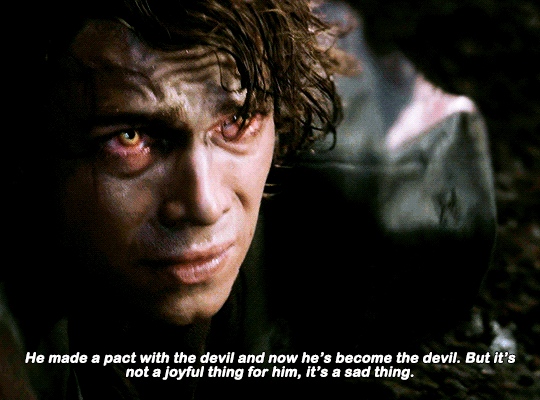


Which is to get rid of the Siths and bring balance to the Force.
3K notes
·
View notes
Text
Before Satine Kryze, Mandalore was what the entire galaxy was in the Sith-era, when societies and cultures were based on the principle of "the strong preys on the weak." Old Mandalore and the Zygerrian Slave Empire share the same mentality: Vizsla asserts, "only the strongest shall rule," and Miraj asserts, "The weak deserve nothing more than to kneel before the strong." This is why both the Death Watch and the re-established Zygerrian Slave Empire were so ready to ally themselves with the Sith Lords. They both thrived when the Sith ruled the known universe - they were, too, empires of darkness.
And they were both, one way or another, ended by the Jedi Order. Satine was protected by the Jedi Knights, thus, she was able to re-organize her planet as a peaceful and symbiotic society, and the Zygerrian Slave Empire was destroyed by the Jedi Knights. This is why both the Death Watch and the re-established Zygerrian Slave Empire hate the Jedi Knights - they cultivated light.
#duchess of mandalore#satine kryze#mandalorians#mandalore#death watch#zygerria#jedi knights#jedi order
79 notes
·
View notes
Text
This is honestly a beautiful love letter to the prequels AND Revenge of the Sith, and I encourage everyone to read it.
Some of the highlights for us:
In recent years, the slaughter of younglings and the ultimate efficacy of Order 66 may have become dank meme fodder to be filed alongside the droid attack on the Wookies and “Hello There!��� But back in ‘05? That montage of Clones massacring Jedi across the galaxy, Anakin igniting his ‘saber at the Jedi temple, was a real watershed moment — a visceral evocation of the horrors of war and the sheer oppressive power of fascism. Thrilling and terrifying in equal measure, “Execute Order 66!” endures as a reminder of a more daring time in franchise filmmaking.
and
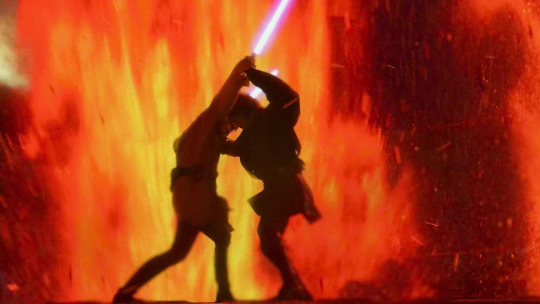
Even now, the emotional and technical craftsmanship of the duel is astonishing. Christensen and McGregor’s blistering choreography and the emotional intensity of their performances; thousands of man-hours’ worth of VFX blending large-scale soundstage work and real footage of Mount Etna erupting; Lucas going full Shakespeare with Anakin’s excoriating, “I hate you!”, and Obi-Wan’s anguished, “You were my brother Anakin… I loved you”; John Williams going God-mode once more with his cacophonous score. It’s an epic battle between the forces of good and evil, the culmination of two trilogies and almost thirty years of cinematic storytelling, painted on the largest canvas imaginable. Honestly, what more could you want from a Star War?
601 notes
·
View notes
Text

Babe, wake up, I have some brand new, terrible news to deliver that has just come out: Star Wars fans are bad.
318 notes
·
View notes
Text
“Anakin/Kylo/[random EU darksider] turned to the Dark Side because of past trauma/people being mean/bad influences. Circumstances made him evil, and therefore it’s not actually his fault or his responsibility and he deserved so much better.”
Ah ah ah ah ah ah ah.
Yeah, no.
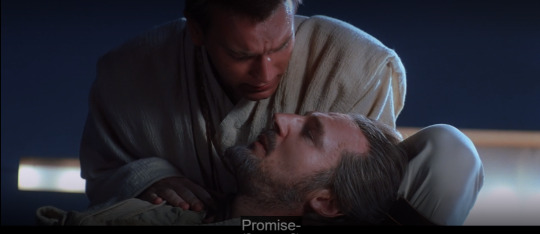
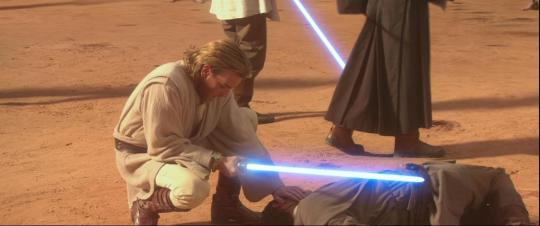
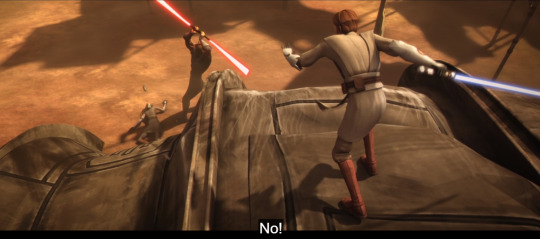



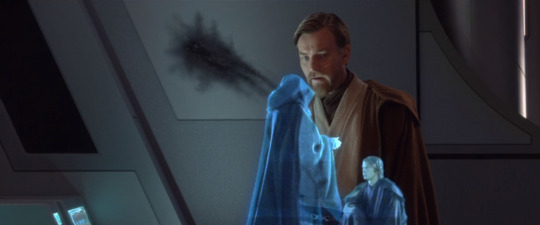

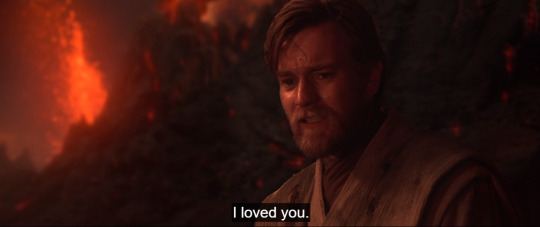


… And in the end he’s still smiling, rooted firmly in the Light.
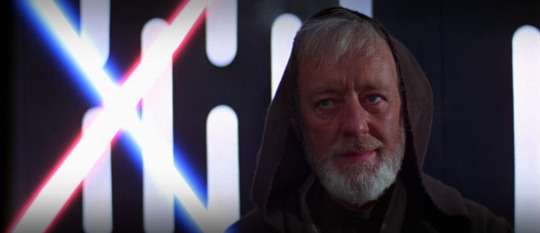
Obi-Wan Kenobi’s life is an absolute nightmare and the foil to every claim that living through terrible things justifies choosing to Fall.
4K notes
·
View notes
Photo
The argument that it was Padmé moving for a vote of no confidence that allowed Palpatine to proclaim himself to be Emperor, but this comparison has very problematic implications. No one with a fair mind would deny the fact that it gave him a chance to rise into power, but this was not the reason why the Republic fell and it was not the way how the Republic fell.
Valorum losing the vote of no confidence and the Senators voting Palpatine in power doesn't follow from Padmé moving for a vote of no confidence in the same way Palpatine destroying the Jedi Order and the Republic follows from Anakin saving him from Mace Windu.
Valorum was well-meaning, but he was a lame duck: his leadership was one without any real voice or power, and he failed to act during a huge crisis, and the Senate was run by bureaucrats who were paid to paralyze it by making sure that there are endless procedures but no decision at the end.
The Senators favored Palpatine over the other candidates, because he capitalized on the suffering of the Naboo people. Palpatine seized total power by manufacturing the Clone Wars and creating panic: the Senate granted him emergency powers and at the end, they completely gave the Republic away in Episode III.
Padmé was explicitly designed by George Lucas to be the antithesis of Palpatine, the good politician as opposed to the bad politician, and she is not the embodiment of the political behavior that leads to the formation of the Empire. In fact, she is the opposite.
To put the responsibility for the creation of the Empire on Padmé in the same way we can put the responsibility for Palpatine being able to finish the creation of his Empire on Anakin misses the point.
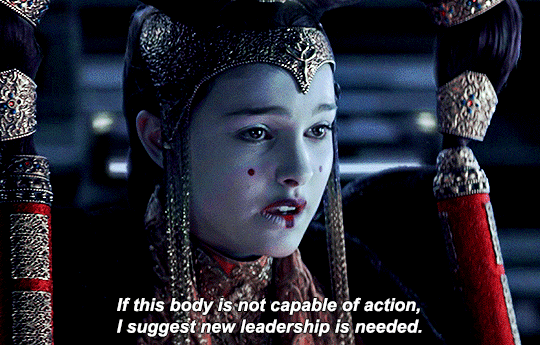

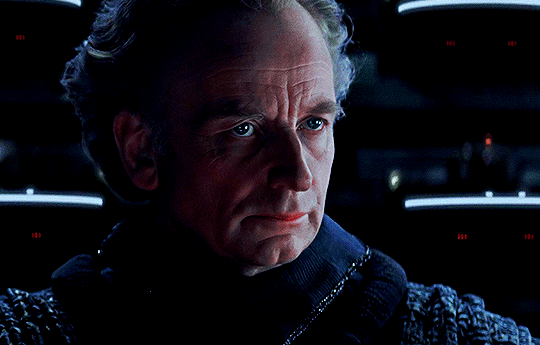


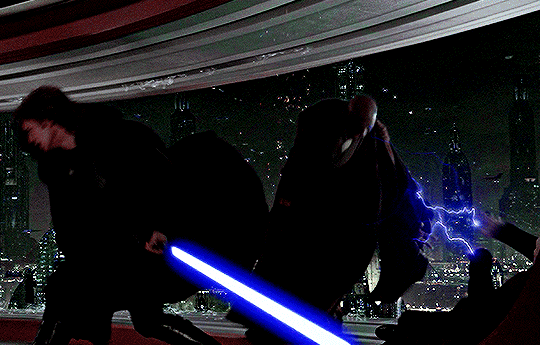
Padmé | Anakin | Palpatine Parallels
Through politics and violence Padmé and Anakin aid Palpatine in securing total power.
662 notes
·
View notes
Text
The thing about the fall of the Jedi Order is that it showed that the good guys sometimes suffer quite devastating defeats by the bad guys, but they always get back on their feet again.
But there is this quite rigid mentality that insists, since "good always wins over evil," if they good guy suffers defeat, it’s because they wasn’t truly good - there was fundamentally wrong with them that prevented them to achieve total, pure goodness that the bad guys can never even touch, let alone deceive or defeat in a battle. It sets unreasonable and unrealistic expectations: if you have the ability to be deceived, to be defeated, you are not a normal human being, but you are "flawed" i.e. there's something to correct about yourself and if you don't do it, then if you are deceived and defeated, then it's your fault.
430 notes
·
View notes
Note
Even Padmé wasn't a Jedi, did she have attachments to Anakin?
Well, it's very important to understand that non-attachment is not restricted to the Jedi - it's not a religious vow or rule or concept. It's to close the gap between reality and how you approach to it: you are not trying to acquire permanent happiness through possessing and having impermanent things. Jedi Knights are not supposed to have attachments, it's not a Jedi-specific quality. Han Solo also let go of his attachment to Leia in Episode VI, when he was genuinely willing to stand aside so she and Luke could be together, if that would make Leia happier. Shmi Skywalker didn't have attachment to Anakin: her love wasn't about how happy Anakin makes her, but how happy she wants Anakin to be. So, she let him go, even though being without him was unpleasant for her. Jedi Knights are cultivating this attitude toward everyone, they're trained to love without grasping or clinging on the people they love, without wanting them to stay in their lives and stay as they are, to make themselves happy.
I would not say that Padmé was attached to Anakin, since she was able to let go of him. At the end of Episode III, she never ceased to love him - wanting him to be happy and free from suffering - but she was able to tell him that she cannot and won't follow him on the path he is going down, even if it means, she will have to live without him. In Clone Wars, it was her who effectively ended their relationship, even though later they reconciled, and although she ultimately did not sacrifice Anakin for keeping Grievous a prisoner, it was clear that she was seriously considering it, and her choice wasn't born out of fear of not having him in her life. She traded Grievous for Anakin only after the Gungans, who lost many of their own to capture the droid general, urged her to do so. That was a more complex situation, involving the conundrum of sacrifice for a meaningful victory vs. sacrifice that leads to victory but makes victory hollow.
So, I say that her flaws are mirroring Luke's flaws. As George Lucas says about Luke leaving Dagobah in Episode V, "[Luke is] being succumbed by his emotional feelings for his friends rather than the practical feelings of “I’ve got to get this job done before I can actually save them. I can’t save them, really.” But he sort of takes the easy route, the arrogant route, the emotional but least practical route, which is to say, “I’m just going to go off and do this without thinking too much.” And the result is that he fails and doesn’t do well for Han Solo or himself." In the same way, Padmé is succumbed to her emotional feelings of being in love with Anakin, rather than the practical feelings of "it would destroy us, he is a Jedi, I am a Senator, it won't work, we love each other but we can't be together." She takes the emotional but least practical route, which is to say, "I know it's a doomed relationship and I won't be happy with it but I'm so in love, I will do it anyway." Which is not exactly attachment.
27 notes
·
View notes